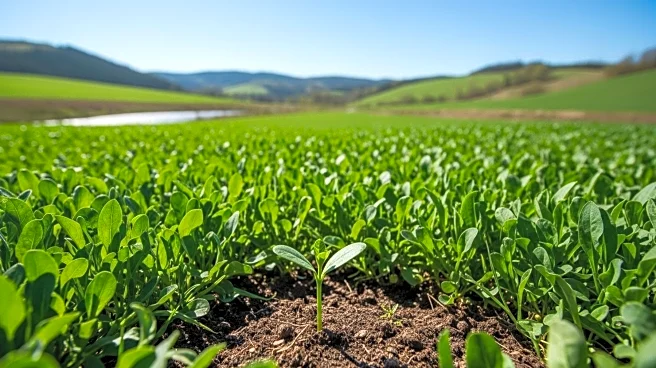What is the story about?
What's Happening?
PepsiCo and the National Geographic Society have announced the launch of the 'Food for Tomorrow' program, a collaborative effort aimed at transforming the global food system through regenerative agriculture practices. This initiative seeks to tackle pressing issues such as soil degradation and the challenges posed by a growing global population, projected to reach 10 billion by 2050. The partnership will leverage National Geographic's storytelling capabilities and PepsiCo's expertise in the food and beverage sector to promote sustainable agricultural methods. The program will fund projects led by National Geographic Explorers, focusing on restoring soil health and enhancing biodiversity. It aims to engage farmers, businesses, and consumers in adopting sustainable practices through compelling narratives and data visualization.
Why It's Important?
The initiative is significant as it addresses the urgent need for sustainable agricultural practices in the face of climate change and increasing global food demands. By promoting regenerative agriculture, the program aims to enhance the resilience of farmers and businesses against climate impacts while improving productivity. PepsiCo's commitment to implementing regenerative practices across 10 million acres by 2030 underscores the importance of this initiative in fostering a more sustainable agricultural landscape. The collaboration seeks to equip farmers with the necessary tools and knowledge to build resilience, potentially leading to long-term benefits for the global food system and environmental sustainability.
What's Next?
The partnership will initially support five National Geographic Explorers who will document the stories of farmers and communities embracing regenerative agriculture. Additionally, grants will be provided for innovative proposals aimed at scaling these practices globally. A dynamic data visualization tool is in development, set to be published in 2026, which will showcase the positive impacts of regenerative agriculture on farming resilience. This tool is expected to further engage stakeholders and promote the adoption of sustainable practices.
















